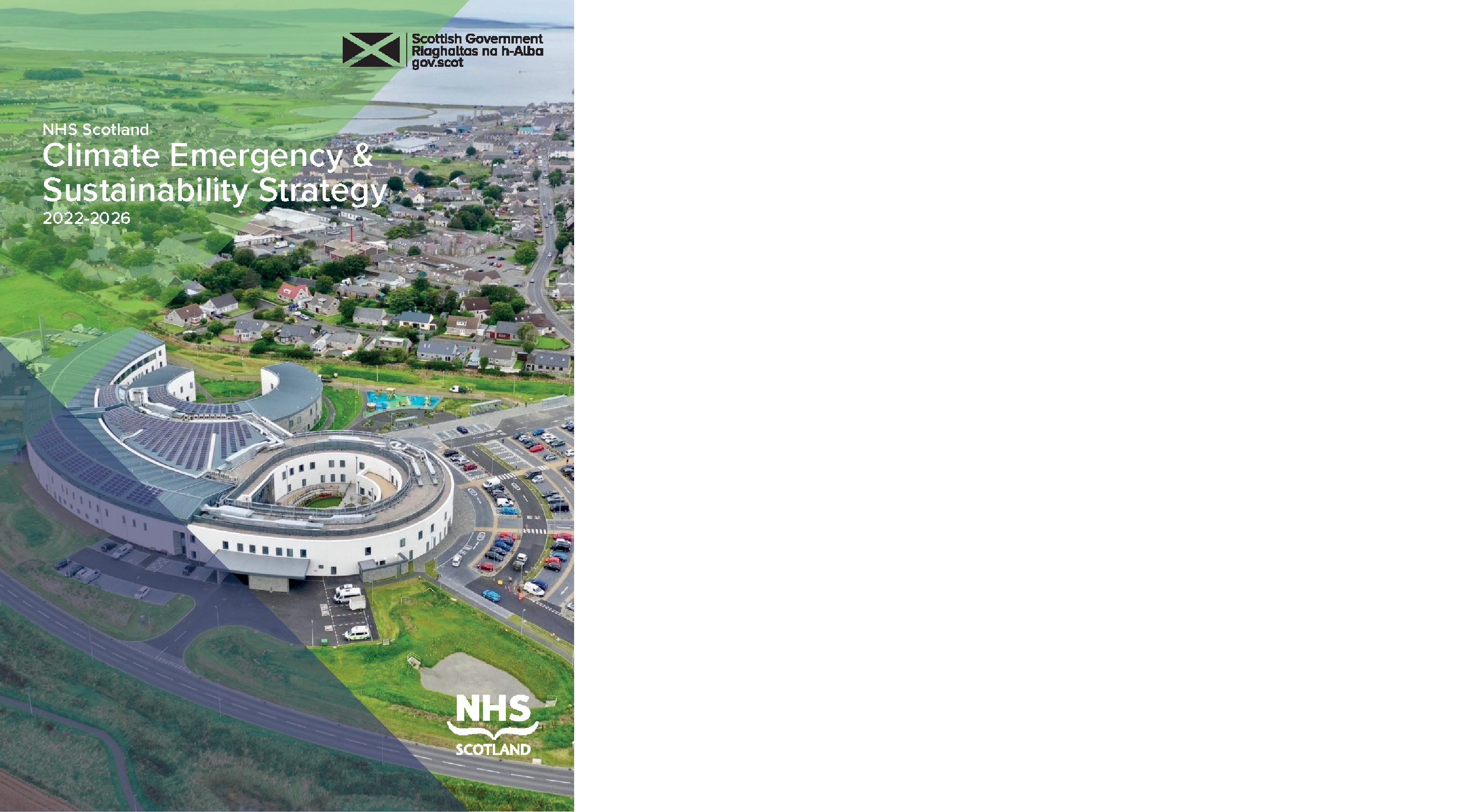The forces that influence sustainable change
The forces that influence sustainable change
Background
In 2022, Scottish Government released its ‘NHS Scotland Climate Emergency and Sustainability Strategy’. The strategy details five workstreams that will help NHS Scotland to achieve net-zero greenhouse gas emissions by 2040 or earlier where possible. To achieve this goal, it will be necessary for all staff groups across NHS Scotland to consider how they can plan and deliver more environmentally sustainable care at an individual, team or organisational level.

To develop an understanding of the current experiences of healthcare professionals who are trying to incorporate sustainability into clinical planning and practice, a group of Scottish Clinical Leadership Fellows completed a forcefield analysis exercise which aimed to:
- Identify the barriers and facilitators to the design and delivery of environmentally sustainable care across NHS Scotland
- Formulate a set of recommendations that would mitigate the barriers and strengthen the facilitators to change.

Methods
The forcefield analysis undertook 1-hour virtual semi-structured interviews with 20 individuals involved in sustainability work from 12 healthcare organisations across Scotland. The project team grouped the barriers and facilitators identified in the interviews into 24 themes and applied a weighted score to each using a scale of 1 = low impact on change, and 5 = high impact of change.

Results
The barriers and facilitators identified to the design and delivery of sustainable healthcare in NHS Scotland, alongside their weighted scores, are displayed below.


Recommendations
Based upon the barriers and facilitators identified, the project team formulated a set of 10 recommended actions that could be taken to strengthen the facilitators and overcome the barriers, so that the design and delivery of sustainable healthcare in NHS Scotland is more likely to succeed. These included:


How can the learning apply to you?
As you think about how to make your own clinical practice more environmentally sustainable, you may find that some of the barriers and facilitators we identified resonate with you, and perhaps you’ll have others to add.
As a next step, it may be helpful to think about some actions you could take to strengthen the facilitators or overcome the barriers you are encountering, so that your own efforts to deliver more environmentally sustainable care are more likely to succeed.
We also believe that the recommendations we have made are applicable to individuals, teams and organisations across NHS Scotland, so we’d encourage you to consider if there is one or more that you could put into action?

Alice Harpur, Emily Turner, Gary Paul, Katie Jobling, Kirsty Crowe, Luis Loureiro Harrison, Patrick Farrell and Richard Tran
Scottish Clinical Leadership Fellows 2022/23

The forces that influence sustainable change
